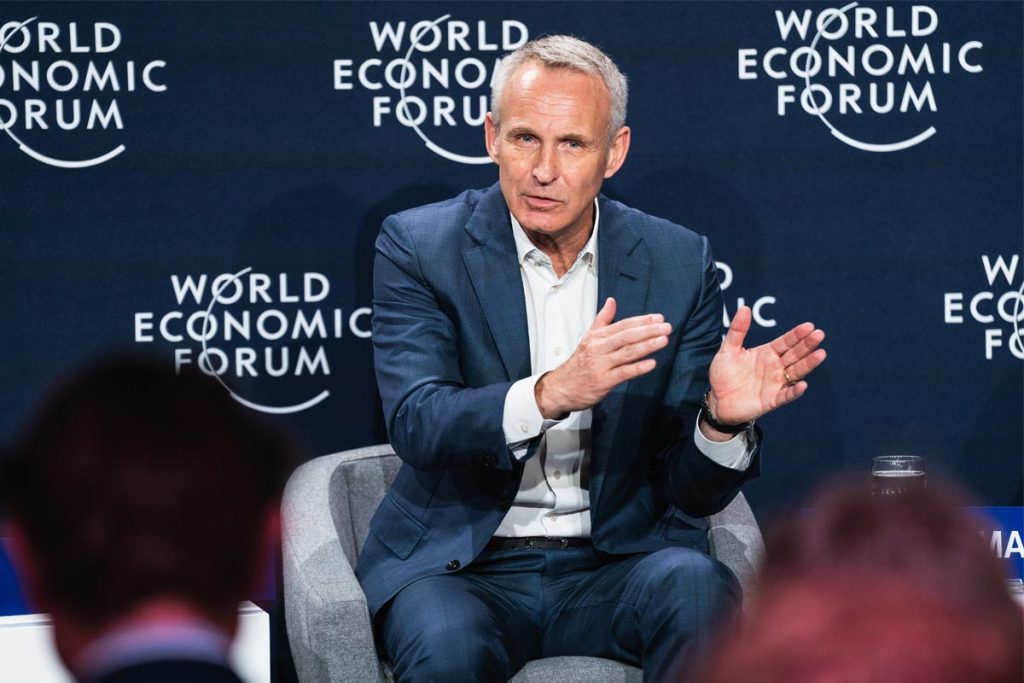It was a watershed moment when the UAE announced the country was moving to a 4.5 working day week, but the move is already paying dividends, the World Economic Forum in Davos has heard.
At a panel at WEF in Davos, Switzerland, experts discussed the benefits of a four-day work week, highlighting how flexible work can help retain talent and lead to greater productivity.
The United Arab Emirates has been an important test case, it heard. After the government introduced a shorter work week earlier this year, the panel was told around 70 percent of employees reported working more efficiently, while there was a 55 percent reduction in absenteeism, according to the UAE’s minister for government development and the future.
The UAE implemented the change for various reasons, including enhancing personal wellbeing and strengthening family and community relations, Minister Ohood Bint Khalfan Al Roumi said on the panel. But there has also been a positive economic side effect.
“When people have longer weekends, they can also spend more,” she said.
Adam Grant, an organizational psychologist at the Wharton School at the University of Pennsylvania, said: “The flexibility people want most at work is not choices about where they work, it’s when and how much they work.”
Jonas Prising, chairman and chief executive officer, of the ManpowerGroup, also tackled the subject at Davos, writing: “The last two years have accelerated new ways of working and collaborating. Before the pandemic, we couldn’t seem to get off the starting block despite increased investment in tech and a rising movement among workers.

“And since, many of us have enjoyed the camaraderie of connection from the comfort of home, while some of us, including myself, have struggled with the interim: hybrid working. But I’m convinced that the hard to define “hybrid” is what will finally pave the path to permanent flexibility. Today, the traditional 9-5, five-day work week looks more old-fashioned than a Ford Model T.
“Workers are rightly calling for more flexibility, better work-life balance, and more choice in deciding when, where and how to best do their jobs.”








